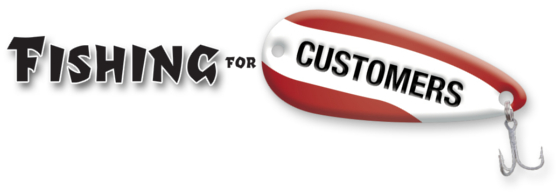Originally Published July 12, 2006
 The scene is a national restaurant chain. I’m meeting a client for lunch. I notice that our hostess, who doesn’t appear to be much more than 19 or 20 is wearing a pin on her apron with the number “10” on it.
The scene is a national restaurant chain. I’m meeting a client for lunch. I notice that our hostess, who doesn’t appear to be much more than 19 or 20 is wearing a pin on her apron with the number “10” on it.
I must have looked a bit puzzled when I asked “Have you worked here for ten years?”
She laughed and said, “No, this just means that I’ve been through our training course and know the ten steps to great customer service.”
“Really,” I asked, “what are they?”
“First, you great the customer with a smile…” she said, her voice trailing off.
Then she laughed, and said “Well, I used to know them,” as she seated us.
What Were Those Ten Steps?
Our waitress informed me that her name was Thelma and she’d be our server today. I asked “Thelma, do you know the ten steps to great customer service?” Thelma said “Oh, sure…” and quickly listed three. She pondered for a minute before naming the fourth… and after a mighty struggle came up with a fifth.
I flagged down three other waitresses in the next 30 minutes, and none of them did any better.
When Thelma brought our check, she also handed me a scrap of paper on which she’d dutifully noted the ten steps, in order. She mentioned that it took a bit of effort to remember them all.
Michael LeBoeuf said it so well in his 1985 book, The Greatest Management Principle In The World: “Behavior that gets rewarded, gets repeated.” (And if you haven’t found time in the last two decades to read this elegantly simple concept, isn’t it time? Click the link and invest three and a half bucks in your personal management library).
Our restaurant chain thought that ten steps to great customer service were so important that they required all of their employees to learn them.
Those Ten Steps Slipped Out Of Consciousness
Unfortunately, it appears that as soon as all employees memorized the list, management thought their job was done. Employees saw no benefit in remembering the list, or applying it. Consequently, they didn’t bother to do so.
Don’t think this could happen in your company? Unless you’re constantly reminding your staff of the things you want them to convey to your customers, I can guarantee that it’s already happened in your company.
I’ve been conducting a small experiment. I’ve been calling businesses randomly at odd hours and asking whomever answers the phone why their company’s service or products are better.
Dare To Try It Yourself?
When the dispatcher picks up the phone with “Mary’s Pizza, how can I help you today?” ask “Why is Mary’s pizza better?”
In the last week I’ve asked “Why is your coffee better?” “Why is the doctor you work for better?” “Why is your customer service better?” “Why are your puppies better?” “Why are your roses better?” “Why is your chili better?”
I’ve made fourteen calls to businesses in my neighborhood. So far, nobody’s been prepared with an answer.
It’s a simple test. Only takes a few minutes. Doesn’t cost anything ‘except maybe a few pennies in long distance charges.
Call your own company. Call your competitors. Call businesses in other cities. Call businesses you’re curious about. Ask the question.
What Do You Hear When You Call Your Own Company?
And if you’re not hearing a clearly articulated point of competitive advantage, may I suggest that you have some work to do for more successful fishing for customers.
And if you’re not hearing a clearly articulated point of competitive advantage, may I suggest that you have some work to do for successful fishing for customers.
Your Guide,
Chuck McKay
 Your Fishing for Customers guide, Chuck McKay, gets people to buy more of what you sell.
Your Fishing for Customers guide, Chuck McKay, gets people to buy more of what you sell.
Need some help strategizing the best way to help your staff to articulate your values? Drop Chuck a note at ChuckMcKay@ChuckMcKayOnLine.com and start a conversation. Or call him at 760-813-5474.


Wow. I am scared to call my own company, but I want to thank you for reminding me why we had all those cards to remember on customer service. Steve